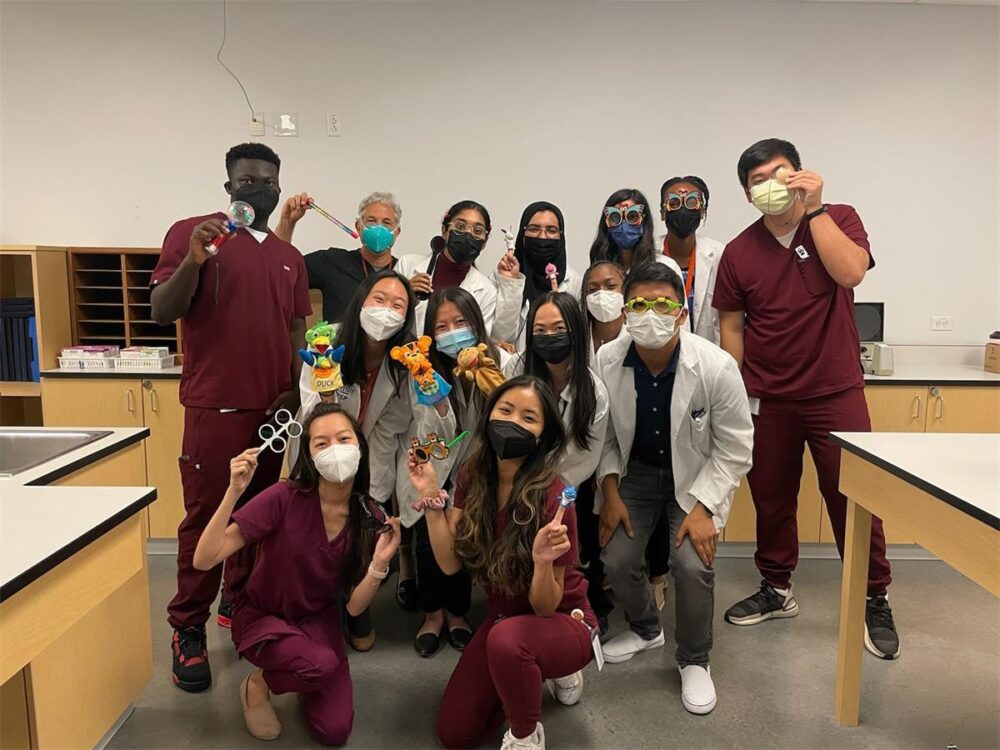Apr 2024
Article By: Sidney Brown, OMS-II
Embarking on a career in the health professions is a transformative experience, often filled with challenges and unexpected turns. As an undergraduate student at the University of Southern Mississippi, I led the American Medical Student Association (AMSA) chapter for two years, guiding students on their paths to medicine and supporting those who chose different careers. This journey can be especially daunting for disadvantaged students, and it’s not uncommon to find oneself considering a different path due to burnout, challenges with school acceptance, or simply a desire for change. In this article, I aim to illuminate the diverse career avenues available to those seeking alternative pathways to become health professionals.
After completing my B.S. in Microbiology, I applied for medical school, but as the rejections came in, I struggled with making a decision on what my next steps would be. Initially, I considered becoming a clinical laboratory technician; however, I discovered that additional certifications were required beyond what my degree provided. Luckily, I discovered several options available! For instance, individuals with undergraduate lab experience can pursue laboratory technician certification through the American Society for Clinical Pathology (ASCP). The “Qualified in Laboratory Safety” track requires a baccalaureate degree and eighteen months of full-time acceptable experience in laboratory safety. Alternatively, a bachelor’s degree opens doors to roles such as being a research coordinator or research assistant in a lab or clinic, without the need for additional certification. When searching for these jobs online, they are often categorized with a number (I, II, III) indicating the level of experience required.
For those whose interests lie outside of lab environments or who lack substantial research experience, postgraduate fellowships offer valuable opportunities. The “Princeton Medical Fellows: Pre-Med/Global Health Gap-Year Program,” for example, provides a 9 to 12-month volunteer fellowship in various locations, offering language and healthcare training along with basic accommodations. These fellowships can serve as a meaningful bridge between undergraduate studies and desired graduate programs, enriching your journey with diverse experiences.
It’s important to recognize that choosing a new or longer path before graduate school can be both challenging and rewarding. These experiences contribute to your personal and professional growth, making you a more well-rounded individual. While it may take time to gain acceptance into your first-choice program, embracing these additional experiences can lead you in unexpected, yet fulfilling, directions. Remember, you are not alone on this journey. Many individuals have walked similar paths, trying different roles and gaining diverse experiences. For myself, I worked full time as a cytology lab assistant while waiting to hear back about my spot on a medical school waitlist, and it shaped me into a better professional and prepared me for some of my medical school courses. When I got my acceptance to medical school, my cytology lab received the news first and wholeheartedly supported me! Embrace the journey, and you may find yourself on a path that exceeds your initial expectations, both personally and professionally.
This leads me to my next point. Consider exploring all the two- and four-year healthcare programs, such as:
- Two-year tracks: anesthesiology assistant, physician assistant, physical therapy assistant, radiology technician, dental assistant, dental hygienist, medical billing and coding, medical illustration, and health information management.
- Four-year tracks: optometrist, podiatrist, pharmacist, dentist, chiropractor, clinical psychologist, or physical therapist.
Additionally, many of these professions have similar shadowing or exam requirements, which means that by shadowing or researching one field, you may fulfill requirements for others without needing to pay for additional tests.
In conclusion, the field of health professions offers a multitude of career paths, and it is important to explore and consider all available options. Myself and other pre-health students faced similar dilemmas in deciding what path to take. Changing directions in your career journey is not only acceptable but can also lead to fulfilling and rewarding opportunities.

